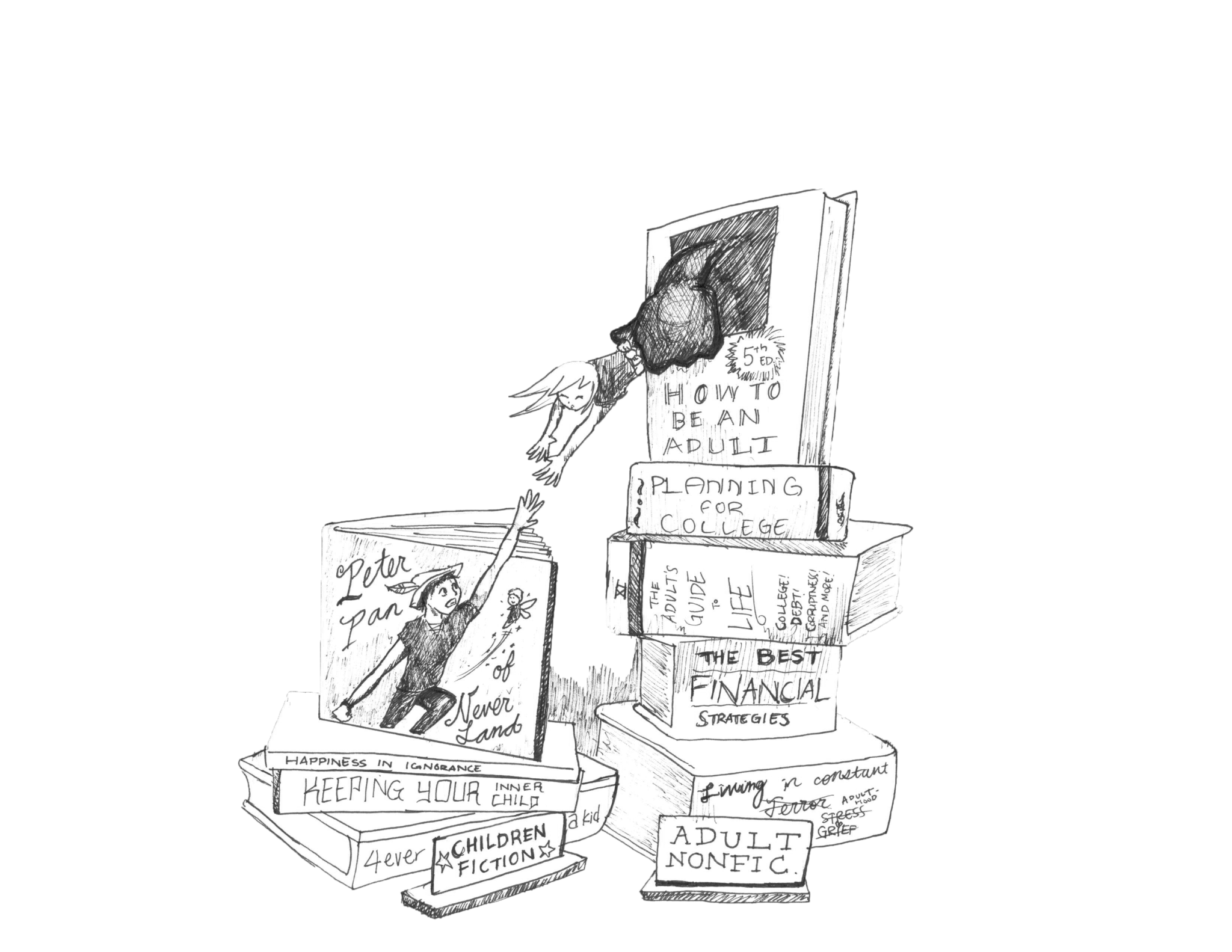
Growing up is a scary prospect: High schoolers, in particular, must learn to be more independent and prepare themselves for college or life after school while also straddling the line between childhood and adulthood. Peter Pan Syndrome, named after the ageless fictional boy, is a common teenage phenomenon characterized by the reluctance to leave the comfort of cartoons or stuffed animals.
Many students hesitate to let go of their childhood because of a fear of the future. Junior Matt Chinn explains, “As a teenager now, I only know what it’s been like to be a child, and I have no idea what the adult world holds for me.” The discomfort of change and not knowing what the future holds is daunting to many students and can often dissuade them from embracing activities associated with “the adult world.”
Junior Sophia Rogers adds, “I think childhood is something that they are secure with and they’ve always had, so once you go to college you cross the border, so you can never go back to your childhood and your childhood dreams,”
More specifically, those with Peter Pan Syndrome are often afraid of the escalation of responsibilities that come with adulthood. “I’m terrified of bills, taking care of myself, and I’m scared of not succeeding as an adult. There’s so much pressure to make money when you’re older,” explains senior Pearl Walker. As junior Adeline Yu explains, “At school it is okay to mess up, but when you are out in a career field or you are raising a child, everything has huge consequences.”
Others feel the reluctance to grow up as result of the reliance on parents and adults.
Chinn says, “[My parent’s advice is] what’s kept me in the mindset of always being dependent on other people … they’ve always been there. I can’t imagine what life would be like if they weren’t around to tell me what to do when I don’t know what to do.”
On the other hand, some parents slowly introduce and set examples for their children in order to make the transition from childhood to adulthood easier. Walker says, “My parents have made it so that I’m ready to grow up. They give me a lot of responsibilities, and they give me advice from time to time.” Yu, on the other hand, is inspired by her parents to become a successful adult: “Going from penniless Chinese immigrants who came to America searching for a better life to being two successful people is definitely inspiring [to me].”
Although childhood may seem appealing, being a “simpler time” free of responsibility and homework, adulthood has its allure. Yeh comments, “When you’re an adult, you’re doing your own thing. And you’re accomplishing things on your own without the help of parents and the help of other people. It’s actually more rewarding to live your own life.” This independence contributes to the freedom that many students associate with being an adult. Rogers says, “There’s one freedom when you’re a kid; it’s the freedom to believe whatever you want. Then as an adult, you have the freedom of being able to go out and taking care of yourself…”
Many students agree that going to college is a signal that it’s time to “grow up.” Chinn says, “My parents are not going to be at college, so I’ll have to do my own responsibilities and stuff.” Yeh believes that most high schoolers are often ready to embrace adulthood by this point. “You can’t really move backwards. You just have to grow up,” she says.




